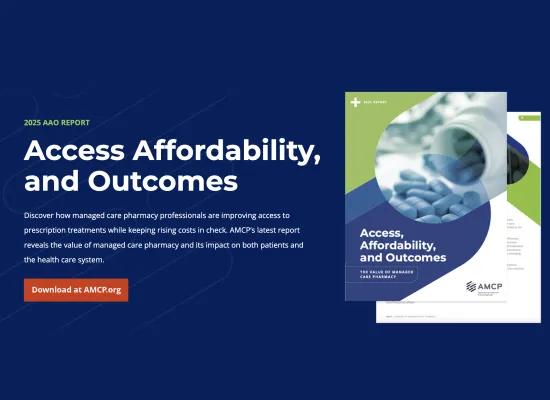
JMCP Research: Biosimilar Naming Conventions May Affect Pharmacists’ Perceptions and Confidence in Dispensing Biologics
Alexandria, Va., Aug. 8, 2016 — Variations in how biosimilar products are named may affect the willingness of some pharmacists to substitute an interchangeable biologic for its branded reference product, according to a survey study published in this month’s Journal of Managed Care & Specialty Pharmacy (JMCP). This effect, however, would be minimized if interchangeable biologics share the same nonproprietary name as the reference biologics.
JMCP is the official scientific journal of the Academy of Managed Care Pharmacy (AMCP).
The survey follows the FDA’s August 2015 release of draft guidance on the nonproprietary naming of biosimilars. The guidance remains nonbinding as the FDA receives input from stakeholders. The guidance also does not address the naming convention for biologics designated as interchangeable.
In light of this uncertainty, researchers sought to determine pharmacists’ perceptions of various naming conventions and their impact on confidence to dispense biosimilars. The study, authored by Daniel Tomaszewski, PharmD, PhD, Chapman University, also measured the burden of laws and regulations requiring pharmacists to complete postdispense notifications. Findings were based on a survey of 781 members of AMCP and the Hematology/Oncology Pharmacy Association. The study was funded by AMCP.
Among the results, participants reported preferring a biosimilar naming convention that uses a nonproprietary base with a designated suffix (48.1%). This compares with 26.3 percent of respondents who preferred a nonproprietary base alone; 14.2 percent who preferred nonproprietary base plus a prefix; and 11.4 percent who preferred a unique brand name.
Although pharmacists did report a preference for nonproprietary names plus a suffix, they did not demonstrate increased confidence when dispensing an interchangeable biologic using this naming convention. Rather 62.9 percent reported higher levels of confidence when the interchangeable product shared the same nonproprietary name with the reference biologic. By comparison, 57.4% of participants reported being confident in dispensing an interchangeable when the biosimilar contained a nonproprietary name plus a suffix.
In a companion Viewpoint article, authors James Stevenson, PharmD, FASHP, University of Michigan College of Pharmacy, and Larry Green, PharmD, FASHP, Amgen, Inc., advocate for assigning biosimilars and interchangeable biosimilars a nonproprietary name with a meaningful suffix — for example reflecting the original manufacturer of the specific product. They argue this is the best approach to minimize inadvertent substitutions and facilitate pharmacovigilance.
Read the full study at www.jmcp.org, or click here. Read the Viewpoint article here.
About JMCP
The Journal of Managed Care & Specialty Pharmacy publishes peer-reviewed original research manuscripts, subject reviews, and other content intended to advance the use of the scientific method, including the interpretation of research findings in managed care pharmacy. It is dedicated to improving the quality of patient care by providing its readers with the results of scientific investigation and evaluation of clinical, health, service, and economic outcomes of pharmacy services and pharmaceutical interventions, including formulary management. www.jmcp.org.
Featured News & Resources
See Full CalendarAward Applications Open
AMCP eLearning Day: Nexus Encore
AMCP 2026 Registration Opens
Upcoming Events
AMCP offers a wide variety of educational opportunities, from events and webinars to online training.







